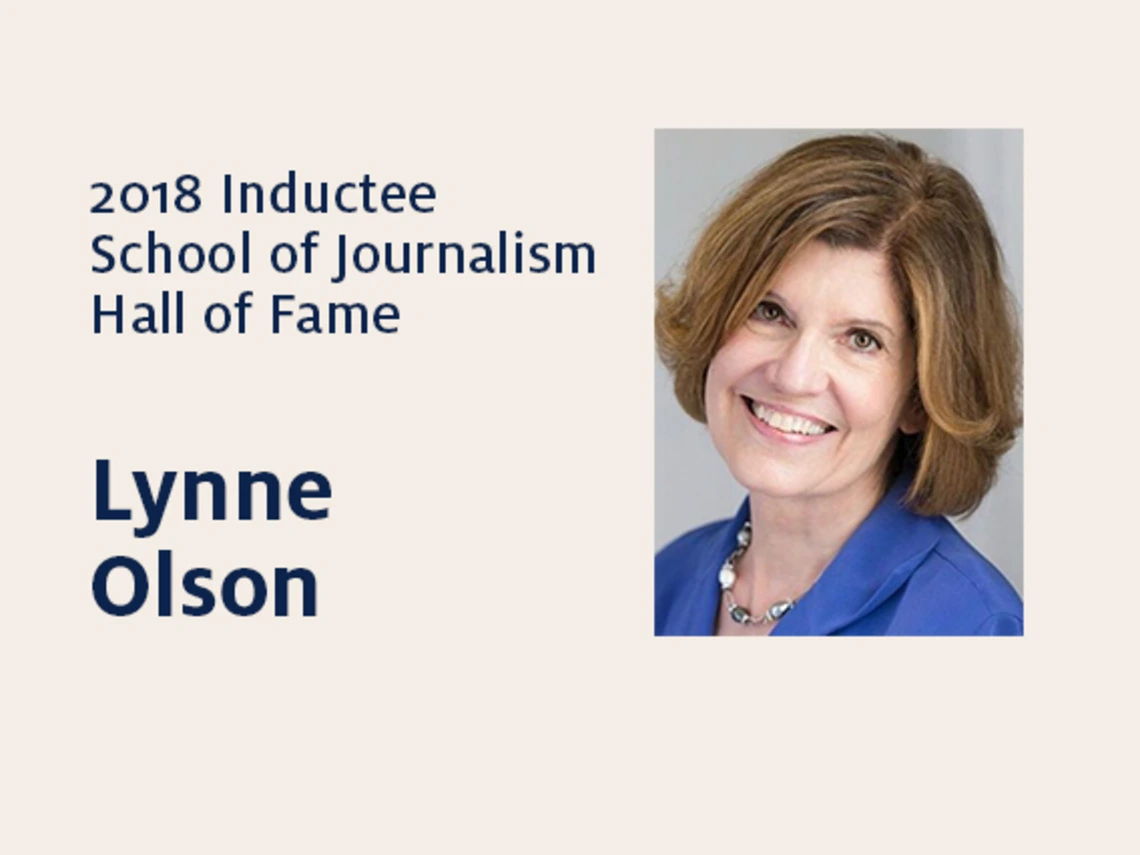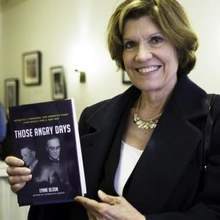Lynne Olson: 2018 Hall of Fame inductee

Lynne Olson, a New York Times bestselling author of eight books of history, has been praised by former U.S. Secretary of State Madeleine Albright as "our era's foremost chronicler of World War II politics and diplomacy."

But Olson first made her mark as a journalist after graduating magna cum laude from UA in 1969.
In 1971, she went to work for the Associated Press in Salt Lake City, and in 1972, transferred to the AP’s San Francisco bureau, where she specialized in feature writing. Later that same year, Olson was named to AP’s top feature writing team in New York, which focused on developing and writing stories about the country’s rapidly changing social mores.
In 1973, she was asked by the AP to become the wire service’s first woman correspondent in Moscow, and she moved to the AP’s foreign desk to prepare for the assignment. She was based in Moscow from 1974 to 1976, once again concentrating on feature stories but also covering such news events as the Apollo-Soyuz space mission and President Nixon’s visit to the Soviet Union.
In 1976, Olson was reassigned to Washington, where she was chosen to cover Jimmy Carter’s presidential campaign. She left the AP to join the Washington bureau of the Baltimore Sun, where she covered national politics and eventually the White House.
Her books deal mostly with Britain’s crucial role in World War II. "Last Hope Island: Britain, Occupied Europe, and the Brotherhood That Helped Turn the Tide of War" was published by Random House in 2017.
Her 2019 book, "Madame Fourcade's Secret War," was published by Random House and details the history of the French Resistance during WWII with a biography of the resistance leader, Fourcade.
“I rely heavily on the human angle in writing history, which comes from my training as a journalist and a feature writer," Olson said.
Olson’s previous books, "Those Angry Days: Roosevelt, Lindbergh, and America’s Fight Over World War II, 1939-1941," and "Citizens of London: The Americans Who Stood with Britain in Its Darkest, Finest Hour," were New York Times bestsellers. The Times and Kirkus named "Those Angry Days" as one of the best books of 2013, while the American Library Association and Amazon selected "Citizens of London" as one of its top nonfiction books in 2010.
"A former journalist, she proves especially resourceful at combing through newspaper archives to flesh out her narrative with evocative detail," wrote Danny Heitman, in his Christian Science Monitor review of Olson's "Those Angry Days."
"She doesn’t so much revisit a historical period as inhabit it; her scenes flicker as urgently as a newsreel.”
Born in Hawaii, Olson lives in Washington, D.C., with her husband, Stanley Cloud, with whom she co-authored two books, including "The Murrow Boys." She has been a guest on numerous television and radio programs, including "The Daily Show" and NPR’s "All Things Considered" and "Morning Edition."
Olson is a member of the Arizona Daily Wildcat Hall of Fame.
Her website is at www.lynneolson.com.
— Don Carson, '54
LYNNE OLSON: IN HER WORDS
"I am a journalist by training. I spent 12 years as a journalist. I've always been interested in history, but I never thought I would write books about history and England and World War II. It happened because I left daily journalism and got tired of the deadlines and wanted to do longer, more extensive work. I like doing research and wanted to do more.
"My husband also is a former journalist (with Time magazine). We were looking to do a book together. Edward Murrow, the great CBS journalist, is one of my all-time heroes. A couple of good biographies had been written on him, so we didn't want to do that. So we decided to do a book on the correspondents he hired to create CBS News before World War II.Some of the research we did involved London, because that's where he made his name in 1940 reporting the Blitz and the Battle of Britain.
"I just fell in love with the place (London) and the period, and everything about it. As what is often true with historians or writers, one book led to another, and that's really what got me going. ... I rely heavily on the human angle in writing history, which comes from my training as a journalist and feature writer."
— C-SPAN 2 Book interview in October 2017

